The Atlantic Council GeoEconomics Center and Atlantik-Brücke will host the Transatlantic Forum on GeoEconomics: Next Frontiers in Finance, Technology, and Energy on September 26, 2024. This is the third convening of the Forum and first time the event will be in the United States. The past two conferences have been held in European financial and political centers—Frankfurt and Berlin.
This year’s conference will be held in New York during the United Nations General Assembly (UNGA) week, when the city hosts top political and financial decision-makers from around the world and executives from across the private sector.
We will convene senior government and private sector officials for impactful discussions on three highly interconnected sectors—finance, technology, and energy. We will raise cross-cutting economic and economic statecraft policies affecting these areas, increase transatlantic alignment and collaboration between Western allies and the private sector, and identify multilateral solutions on:
- Securing the global financial system
- Enabling technology innovation
- Driving energy transition
Register for the Transatlantic Forum using the form provided. If you have questions, please contact GeoEconomics@AtlanticCouncil.org.
Featured speakers
Agenda
8:30 a.m. | Breakfast and registration
9:00 a.m. | Opening remarks
Sigmar Gabriel, Former Vice Chancellor and Foreign Minister of Germany | Chairman, Atlantik-Brücke
Fred Kempe, President and Chief Executive Officer, Atlantic Council
9:15 a.m. | Keynote remarks and discussion with U.S. Ambassador Nicholas Burns
Technology competition with China while enabling and protecting US and Western partners’ economic and national security interests has been a key pillar of US foreign policy for the Biden Administration. Ambassador Burns will share his perspectives on the current geoeconomic landscape based on his experience engaging with Beijing and opportunities and challenges going forward.
R. Nicholas Burns, Ambassador of the United States of America to the People’s Republic of China, Department of State (Virtual)
Moderator: Josh Lipsky, Senior Director, GeoEconomics Center, Atlantic Council
10:00 a.m. | Spotlight conversation with Nasdaq CEO Adena Friedman on navigating financial complexity: Public-private collaboration and technological innovation
As the financial system grows increasingly complex, it’s essential for the public and private sectors to work together to address key issues. This discussion will delve into the importance of such partnerships in managing financial complexity and ensuring regulatory frameworks that safeguard the integrity of the financial system. A key focus of the conversation will be on how technology, when embraced, can serve as a powerful tool to simplify these complexities and will explore how technology is being integrated into current practices, such as the fight against financial crime.
Adena Friedman, Chair and Chief Executive Officer, Nasdaq
Moderator: David Westin, Anchor, Bloomberg Wallstreet Week, Bloomberg Television
10:30 a.m. | Session I: The role of financial regulation in curbing illicit financial flows
The United States and European partners have issued financial regulatory reforms and set standards to strengthen anti-money laundering and countering the financing of terrorism regimes and enhance efforts to combat illicit finance and financial crimes. Following remarks by US Treasury Acting Under Secretary for Terrorism and Financial Intelligence Brad Smith, the panel will discuss the regulatory updates and what the changes mean for the financial sector.
Jennifer Fowler, Member of the Secretariat, Financial Stability Board (Virtual)
Chandana Ravinadrath, Head of Strategic Illicit Finance Initiatives, U.S. Department of the Treasury
Brad Smith, Acting Under Secretary, Office of Terrorism and Financial Intelligence, U.S. Department of the Treasury (Virtual)
Dan Tannebaum, Partner, Oliver Wyman
Moderator: Kim Donovan, Director, Economic Statecraft Initiative, Atlantic Council
11:00 a.m. | Session II: The roles and responsibilities of governments, industry, and the financial sector in protecting sensitive technology
Western partners are leveraging economic statecraft tools such as export controls to protect sensitive technology from getting into the hands of adversaries. As a result, the financial sector and private sector are being asked to play a larger role in national security and specifically in complying with export controls. This session will focus on government efforts and private sector roles and obligations related to complying with national security policy decisions, such as export controls and sanctions. Speakers will share best practices and, as appropriate, outcomes from public-private sector engagements and information sharing.
Matt Axelrod, Assistant Secretary for Export Enforcement, Bureau of Industry and Security, U.S. Department of Commerce
Andrea Gacki, Director, Financial Crimes Enforcement Network (FinCEN), U.S. Department of the Treasury
David Reed, Director, Sanctions Directorate, UK FCDO (Virtual)
Moderator: Kim Donovan, Director, Economic Statecraft Initiative, Atlantic Council
11:40 a.m. | Session III: Technology regulation and the future of artificial intelligence
Transatlantic partners are considering tighter investment screening policies and regulations around sensitive technology and innovation including semiconductors, quantum information technologies, and certain AI systems to protect intellectual property and national security interests. This session will focus on Western partners’ efforts to regulate AI and assess their level of policy coordination. Speakers will identify any existing regulatory gaps between partner governments around AI and technology innovation and discuss the effect of these gaps on the private sector and investment. They will also suggest possible solutions for closing these gaps and analyze the effects of these policies on Western technology innovation.
Karan Bhatia, Google, Head of Government Affairs and Public Policy
Elizabeth Kelly, Director, U.S. Artificial Intelligence Safety Institute, National Institute of Standards and Technology, U.S. Department of Commerce
Eva Maydell, Member, European Parliament (Virtual)
Michael Sikorski, Chief Technology Officer and Vice President of Engineering, Palo Alto Networks
Moderator: Jörn Fleck, Senior Director, Europe Center, Atlantic Council
12:20 p.m. | Networking lunch
1:15 p.m. | Afternoon opening remarks
Kim Donovan, Director, Economic Statecraft Initiative, Atlantic Council
1:20 p.m. | Spotlight conversation with Deputy Attorney General Lisa Monaco
The prevalence of economic security in national security decisions is evolving and expanding. As a result, more traditional national security departments and agencies are playing a larger role in developing, implementing, and enforcing economic policies. DAG Monaco will discuss the DOJ’s role in economic security and coordination efforts with transatlantic partners to enforce economic statecraft measures and prevent adversaries from gaining access to sensitive Western technology and the global financial system.
Lisa Monaco, Deputy Attorney General, Department of Justice (Virtual)
Moderator: Stephanie Flanders, Head of Economics and Government | Head, Bloomberg News | Bloomberg Economics
2:00 p.m. | Session IV: Vulnerabilities and opportunities in the electric vehicles supply chain
Industrial policies are designed to safeguard national security and encourage economic growth among partners, especially in the energy transition domain and electric vehicles (EVs). Friendshoring, subsidies, investment screening, and sanctions are being considered or used to protect and shape technology and EV component supply chains. This panel will discuss strategies for advancing green initiatives and energy transition multilaterally while considering national security objectives. Speakers will address the risks and vulnerabilities within the EV supply chains and uncover unintended consequences of using economic statecraft tools in this space.
Sarah Bauerle Danzman, Associate Professor of International Studies | Nonresident Senior Fellow, Hamilton Lugar School of Global and International Studies at Indiana University | Atlantic Council
Ambroise Fayolle, Vice-President, European Investment Bank
Chris Smith, Chief Government Affairs Officer, Ford Motor Company
Anahita Thoms, Partner | Chairwoman of the ESG Advisory Board, Baker McKenzie | Fresenius Group
Moderator: Maia Nikoladze, Associate Director, GeoEconomics Center, Atlantic Council
2:45 p.m. | Spotlight conversation with Deputy National Security Advisor for International Economics Daleep Singh
Economic Statecraft measures including sanctions and export controls have become a fixture in national security and foreign policy decisions. DNSA Singh will discuss his vision for a doctrine of economic statecraft to ensure the long-term credibility of these tools and strategic alignment among Western partners.
Daleep Singh, Deputy National Security Advisor for International Economics, The White House
Moderator: Julia Friedlander, CEO, Atlantik-Brücke
3:15 p.m. | Session V: Transatlantic strategy for enhancing critical mineral supply chain resilience
Energy transition is dependent on access to and investment in critical minerals and supply chains. Production and processing of critical minerals is highly concentrated in a handful of countries. For example, aluminum is essential for solar panel production while the main aluminum producers in the world are China, India and Russia. Geographic concentration of critical minerals and potential supply chain disruptions may create vulnerabilities for energy transition efforts. This panel will discuss opportunities and challenges associated with diversifying and stabilizing the global critical mineral supply chain and Western financial investment in the supply chain and infrastructure to enable clean energy transition and transatlantic economic and energy security.
Mustapha Rawji, CEO, Rawbank
Anthony Weiss, Executive Director, TechMet
Moderator: Reed Blakemore, Director, Research and Programs, Global Energy Center, Atlantic Council
3:50 p.m. | Session VI: Transatlantic strategy to enable stronger cyber resilience within the financial system
Cyber attacks, intrusions, and disruptions increasingly pose risks to the core of the global financial system, negatively impacting the financial system and real economy. Meanwhile technology innovations like AI provide opportunities to strengthen cyber resilience, but also present their own challenges and risks. This panel will assess the current cyber threat landscape in the financial system and the potential implications for the global economy. Panelists will discuss and offer solutions for better coordination between the government and private sector to strengthen cyber resilience within the global financial system and among transatlantic partners and allies.
Carole House, Special Advisor for Cybersecurity and Critical Infrastructure Policy, White House National Security Council, Nonresident Senior Fellow, Atlantic Council
Dave Levy, Vice President, Amazon Web Services
Sven Weizenegger, Head, Cyber Innovation Hub, German Armed Forces
Moderator: Dan Flatley, National Security Reporter, Bloomberg
4:30 p.m. | Spotlight conversation with Mastercard Vice Chairman and President Jon Huntsman
Jon Huntsman, Vice Chairman and President, Strategic Growth, Mastercard
Moderator: Josh Lipsky, Senior Director, GeoEconomics Center, Atlantic Council
4:45 p.m. | Session VII: The Geopolitics of Payments and the Role of the US Dollar in a Changing World
The dollar remains the global reserve currency and primary currency for trade. However, in the past few years, increasing use of financial sanctions have pushed several countries towards the adoption of alternative currencies and payment systems. This session will discuss how the dollar is used for trade and as a tool of US foreign policy and what opportunities or challenges this presents for the US government, foreign partners, and the financial and private sectors. Speakers will focus on how the geopolitical landscape informs or affects innovation and decisions in cross-border payments and how transatlantic partners can best position themselves for future changes in this space.
Candace Kelly, Chief Legal Officer, Stellar
Saleha Mohsin, Senior Washington Correspondent, Bloomberg
Jay Shambaugh, Under Secretary for International Affairs, US Treasury
Stefan Simon, Chief Administrative Officer and Management Board Member, Deutsche Bank
Moderator: Josh Lipsky, Senior Director, GeoEconomics Center, Atlantic Council
5:30 p.m. | Closing remarks
Kim Donovan, Director, Economic Statecraft Initiative, Atlantic Council
Julia Friedlander, Chief Executive Officer, Atlantik-Brücke
Josh Lipsky, Senior Director, GeoEconomics Center, Atlantic Council
6:00 p.m. | German-American Friendship Concert
Following the Forum, please join us for the private German-American Friendship Concert presented by Atlantik-Brücke at Carnegie Hall. Additional information and registration for the concert are available here.
Coverage
Conference publications
Explore
See key highlights from our past forums in Frankfurt and Berlin.
Stay connected
Sign up below to receive updates on related events, analysis, and more from the GeoEconomics Center.
Stay connected
Presented by
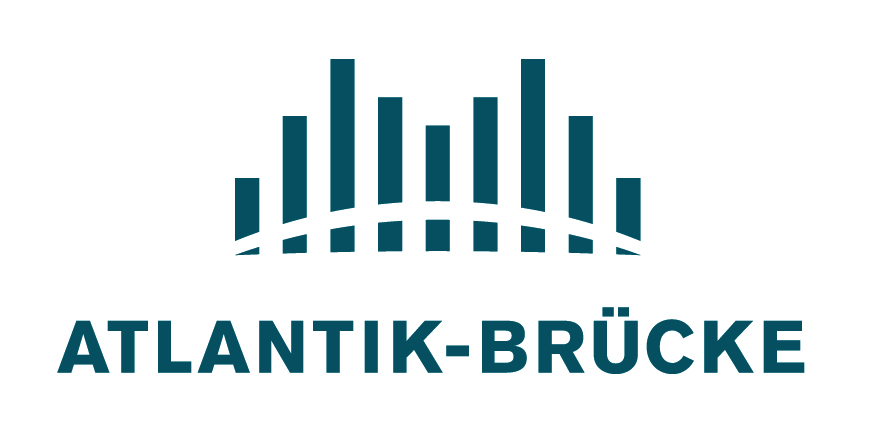
Atlantik-Brücke
Strengthening the exchange between politics and business, Atlantik-Brücke aims to deepen cooperation between Germany, Europe and America on all levels.
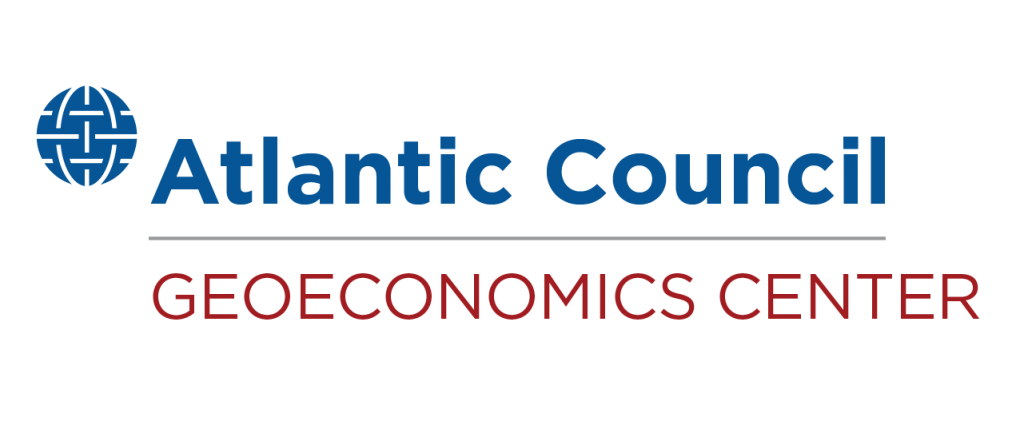
GeoEconomics Center
At the intersection of economics, finance, and foreign policy, the GeoEconomics Center is a translation hub with the goal of helping shape a better global economic future.
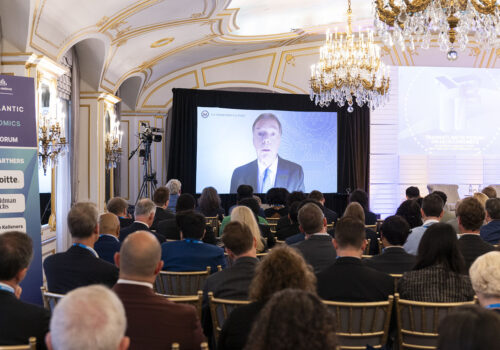
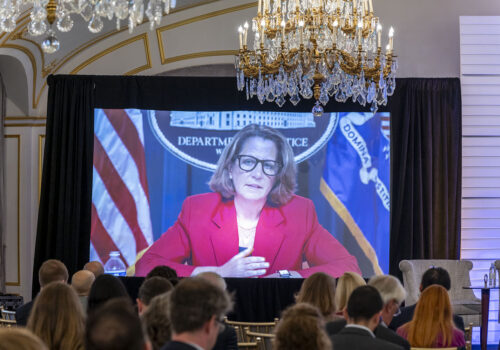
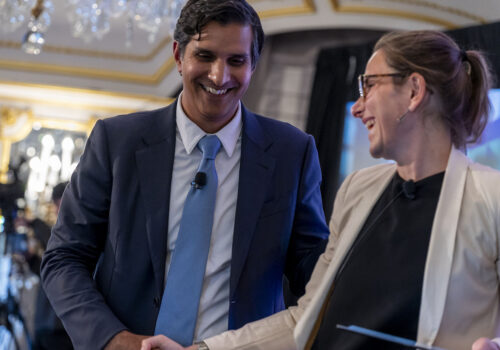
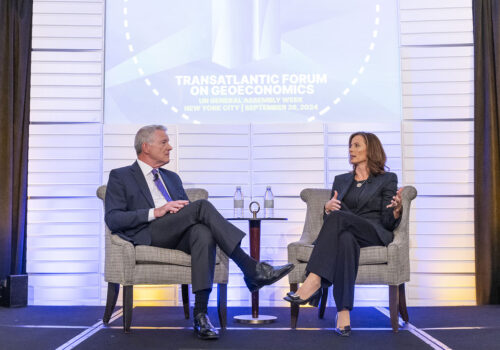
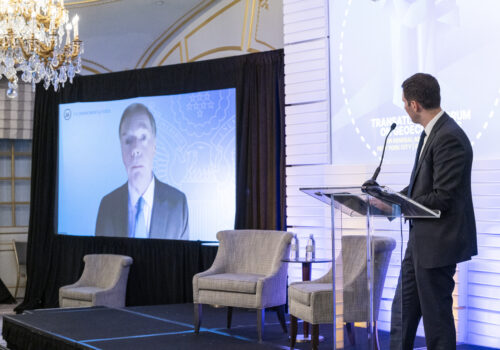
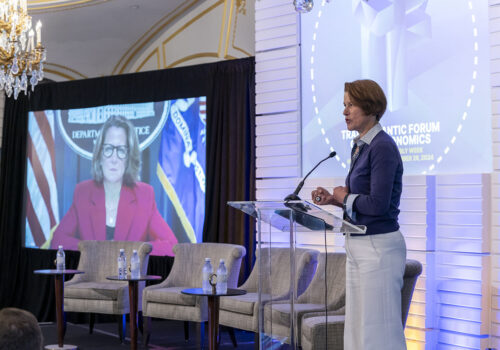
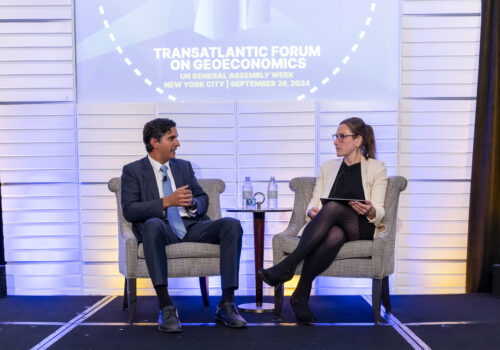
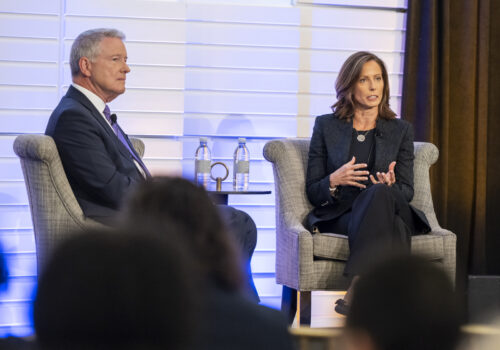
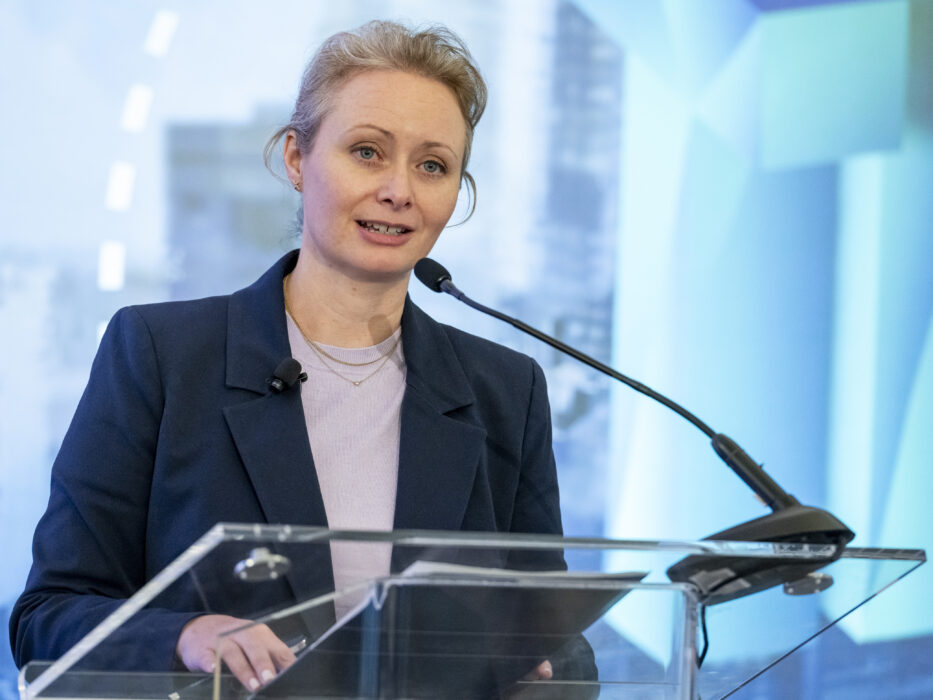
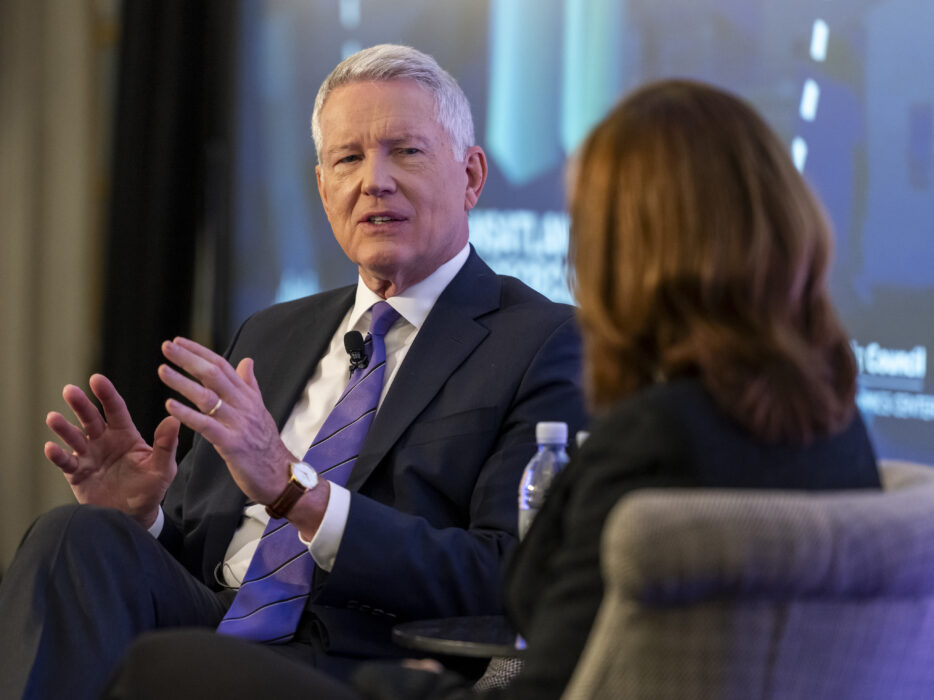
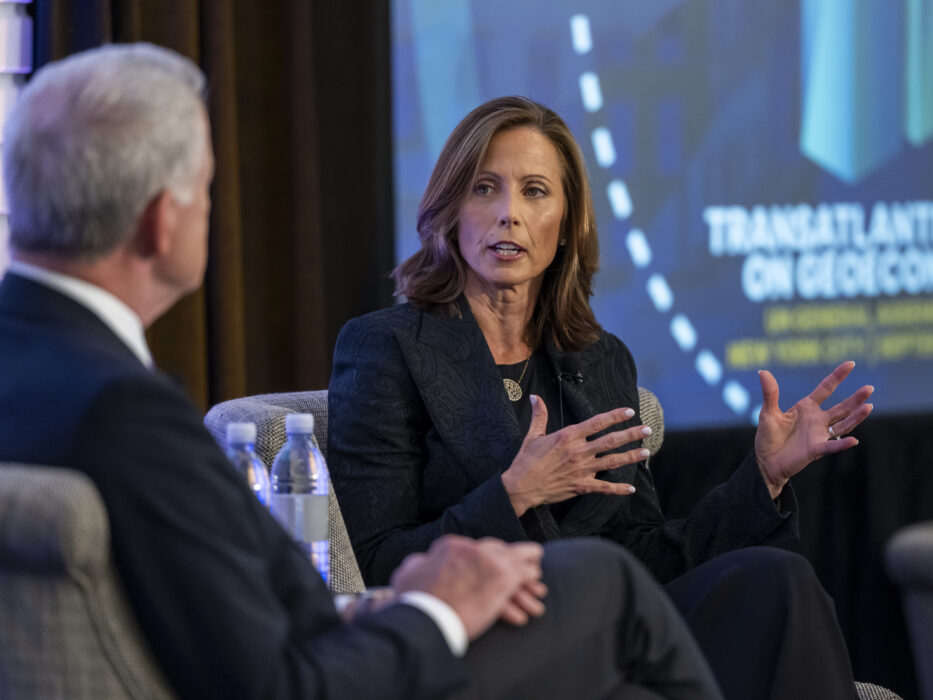
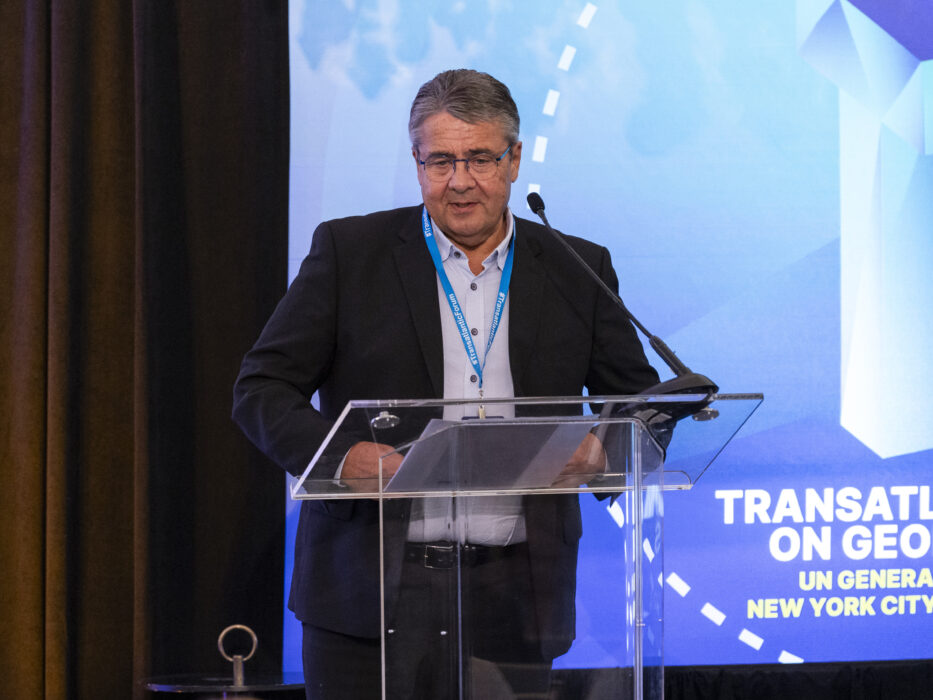
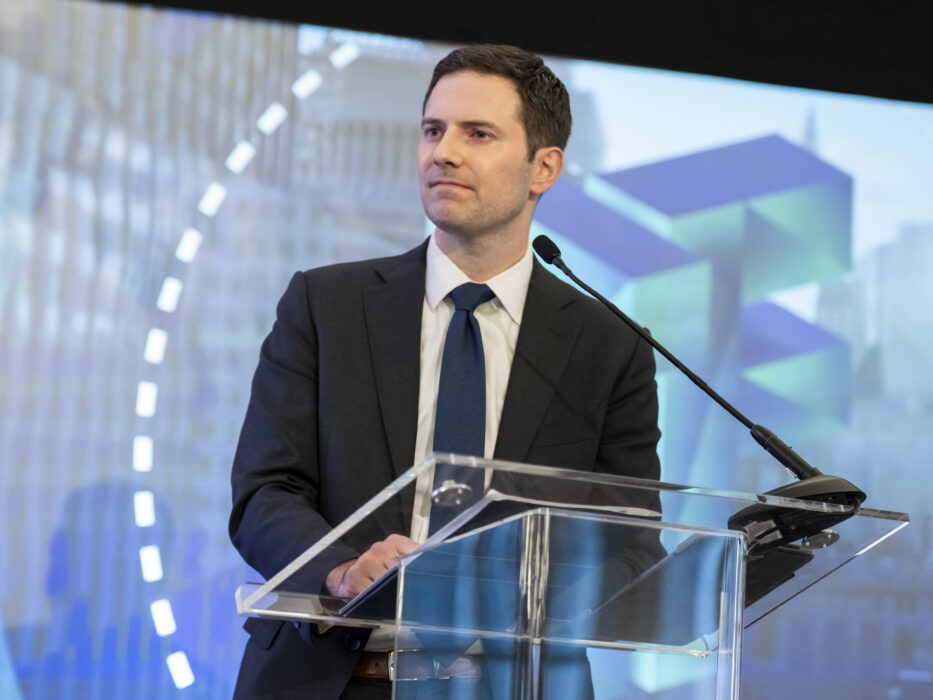
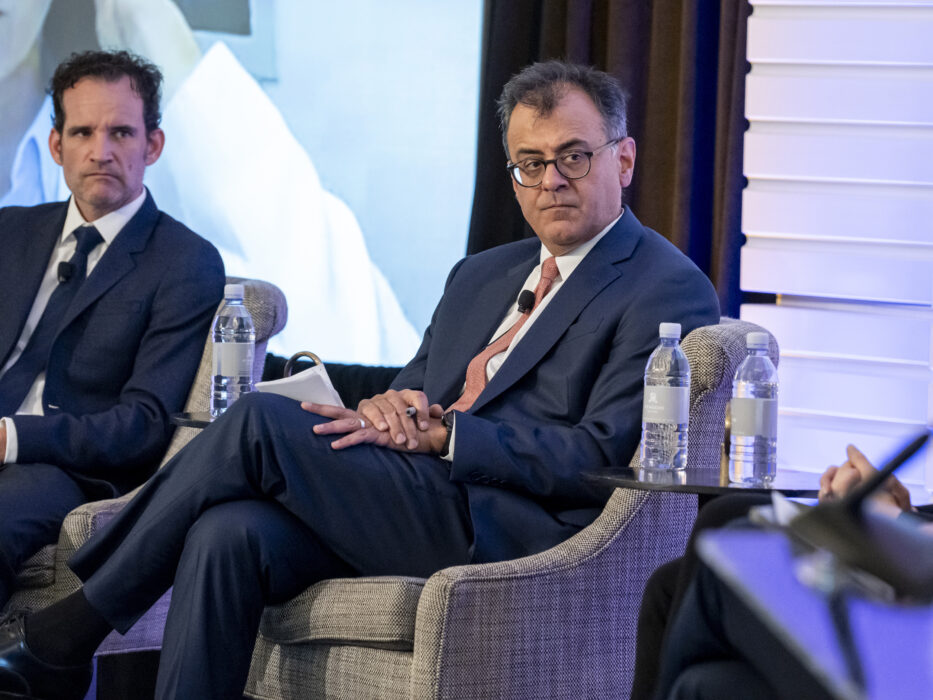
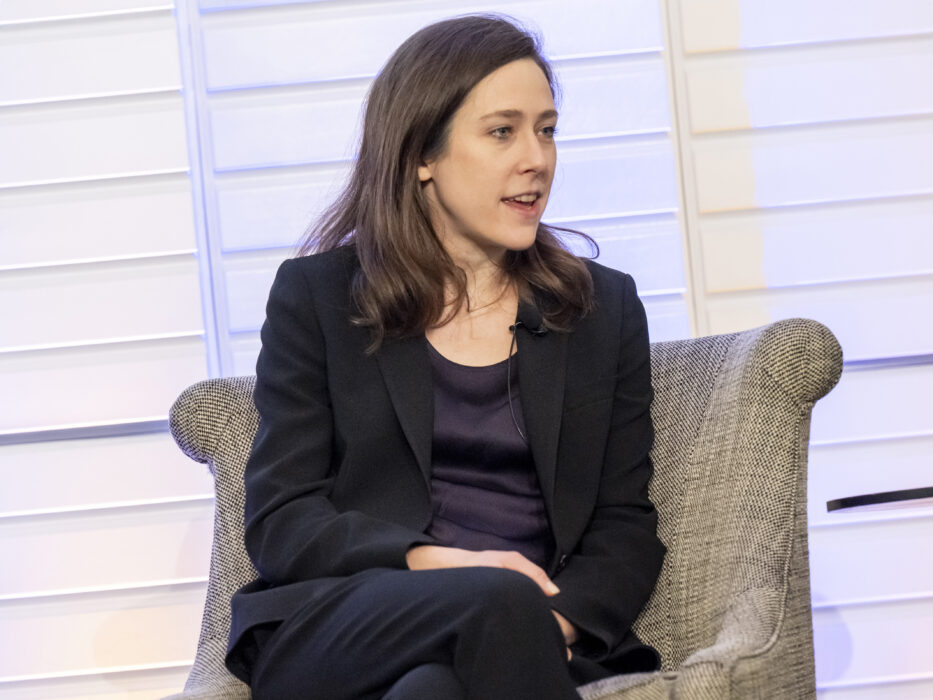
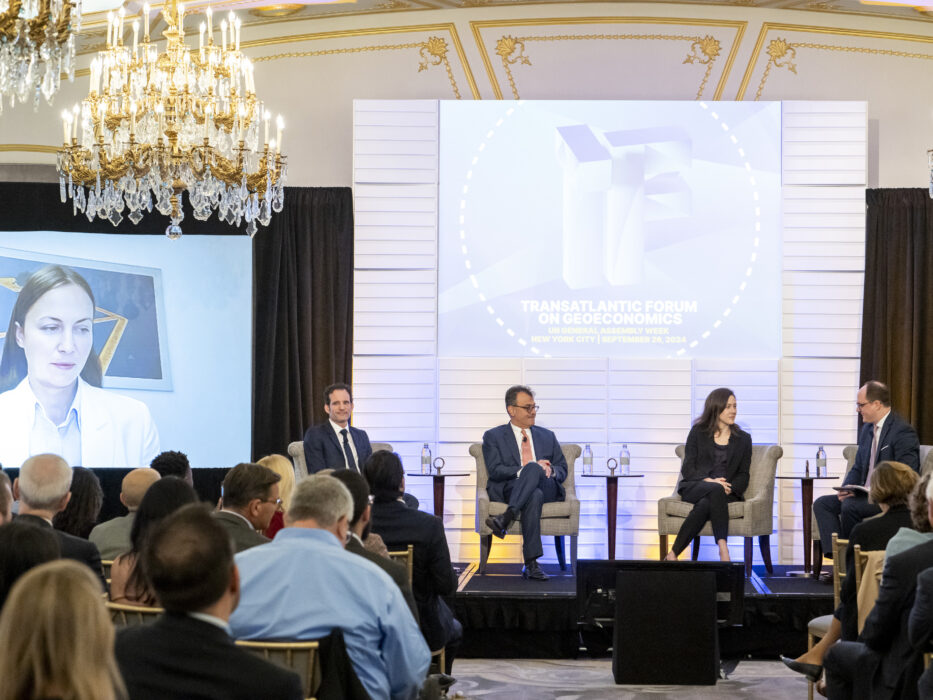
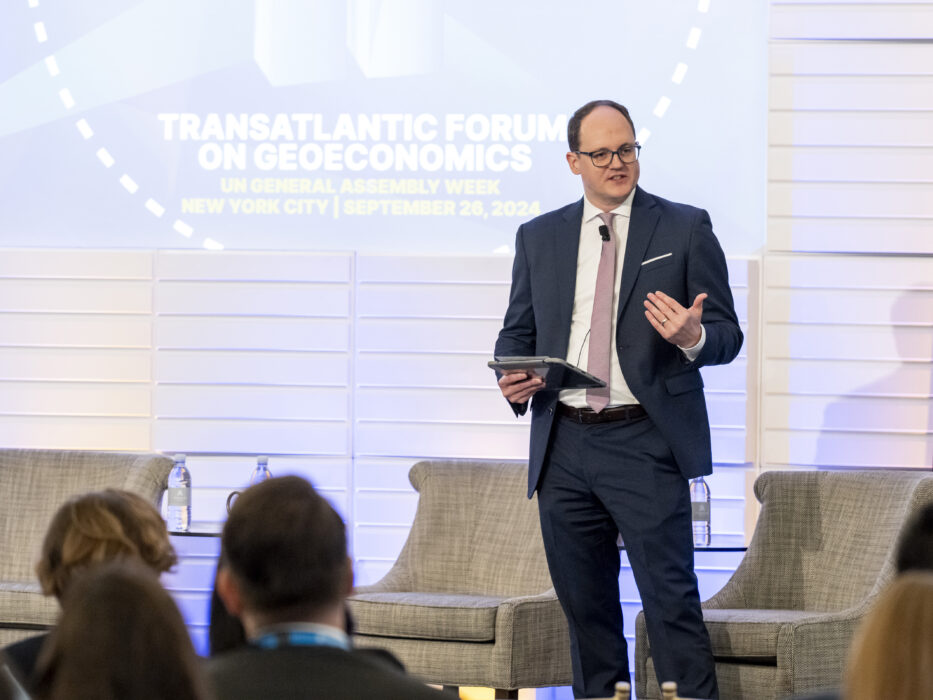
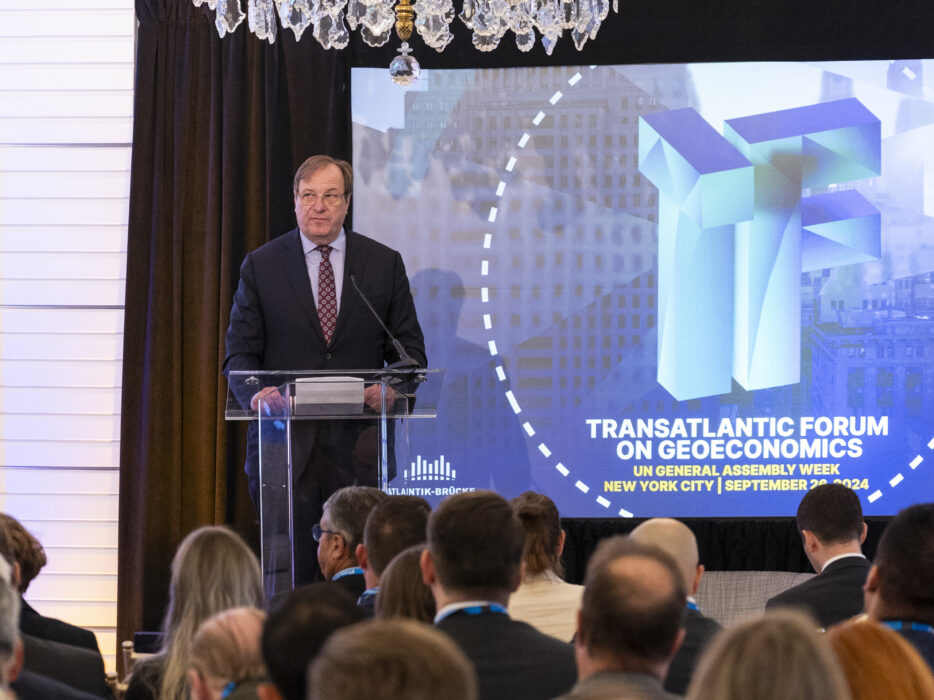
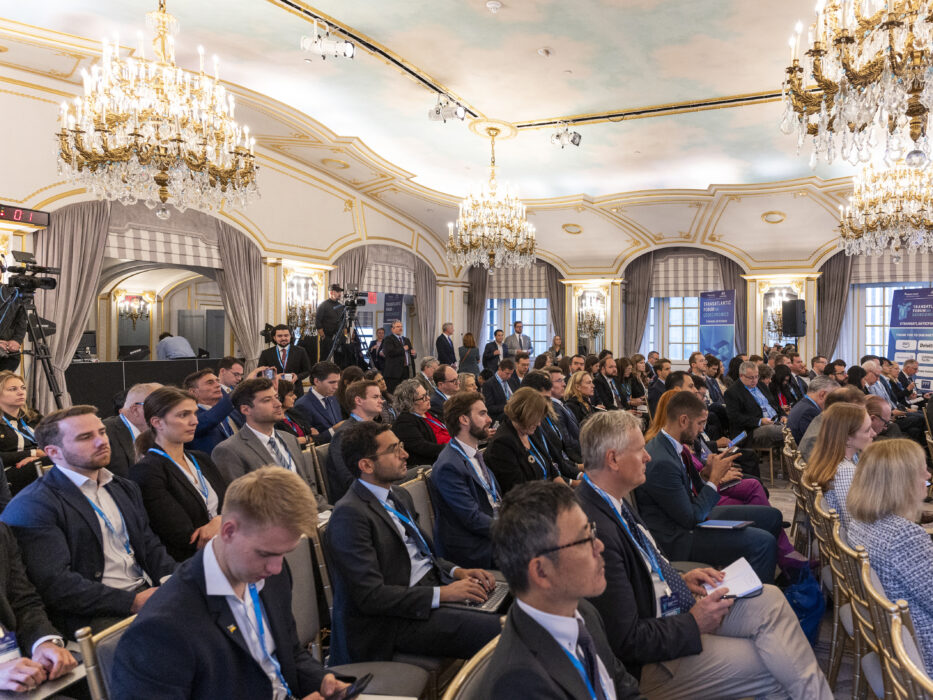
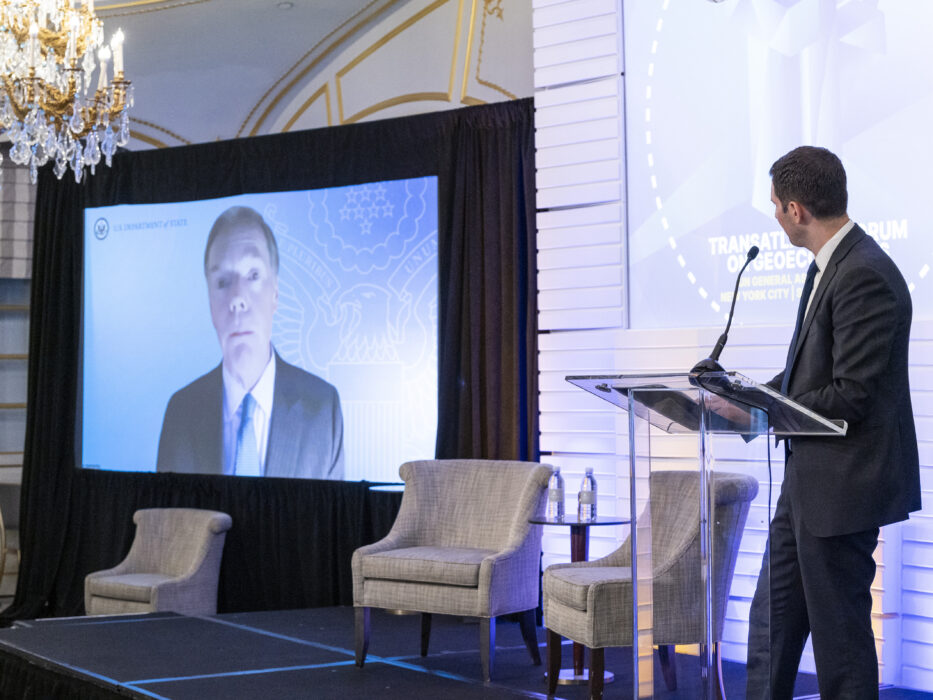
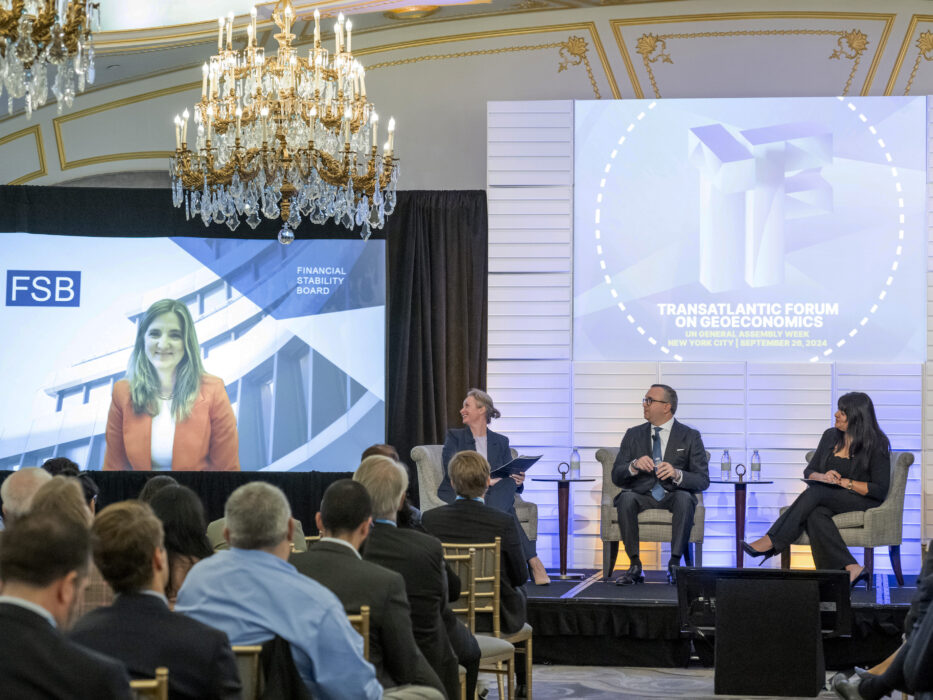
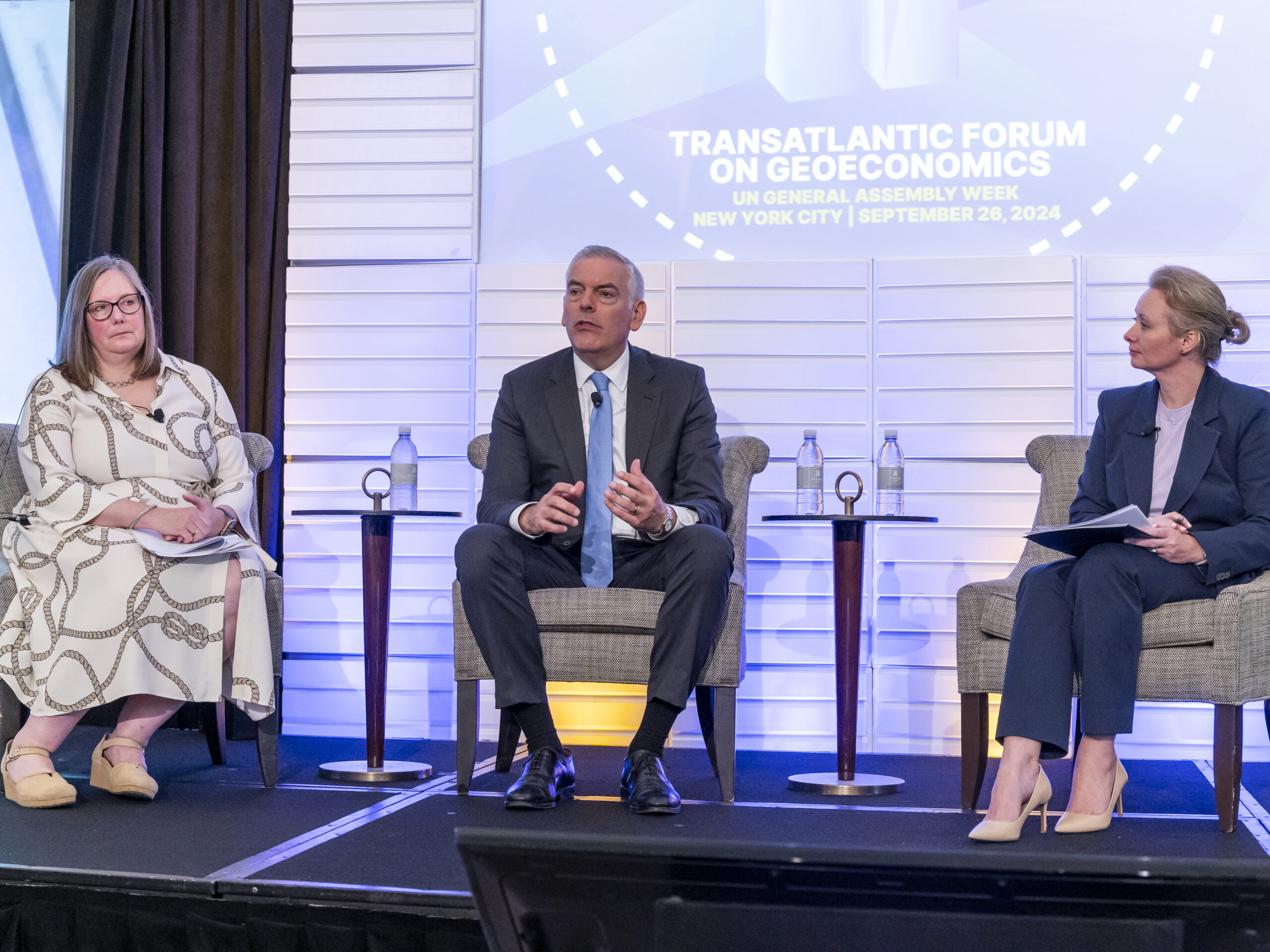
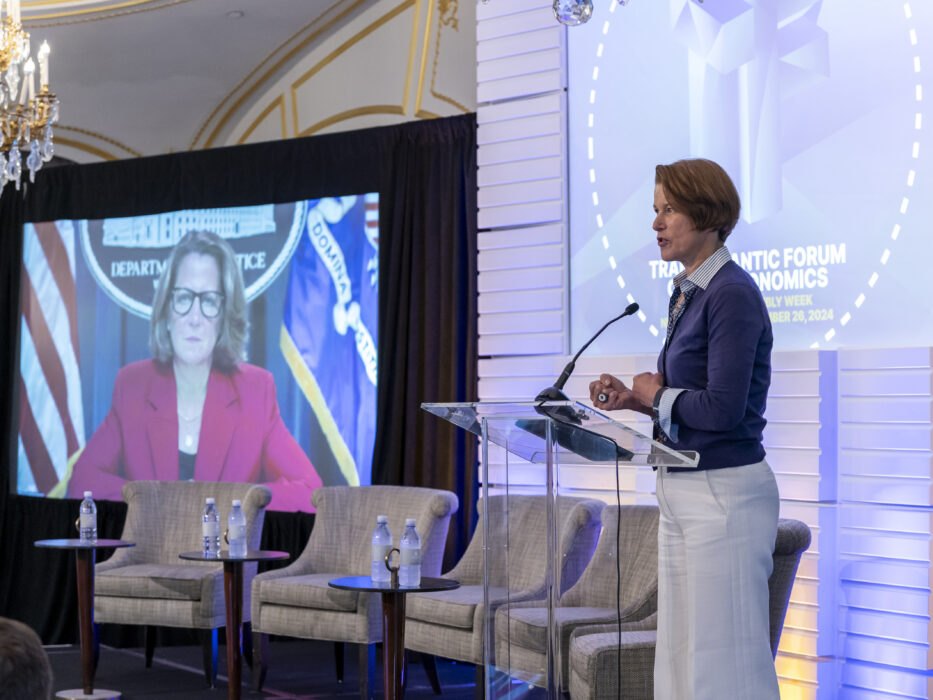
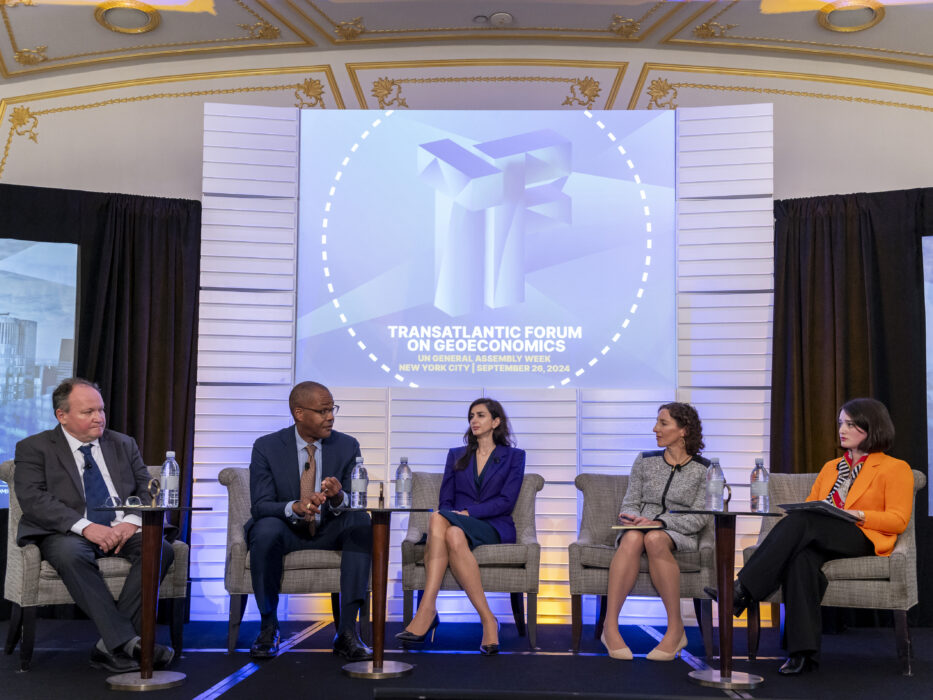
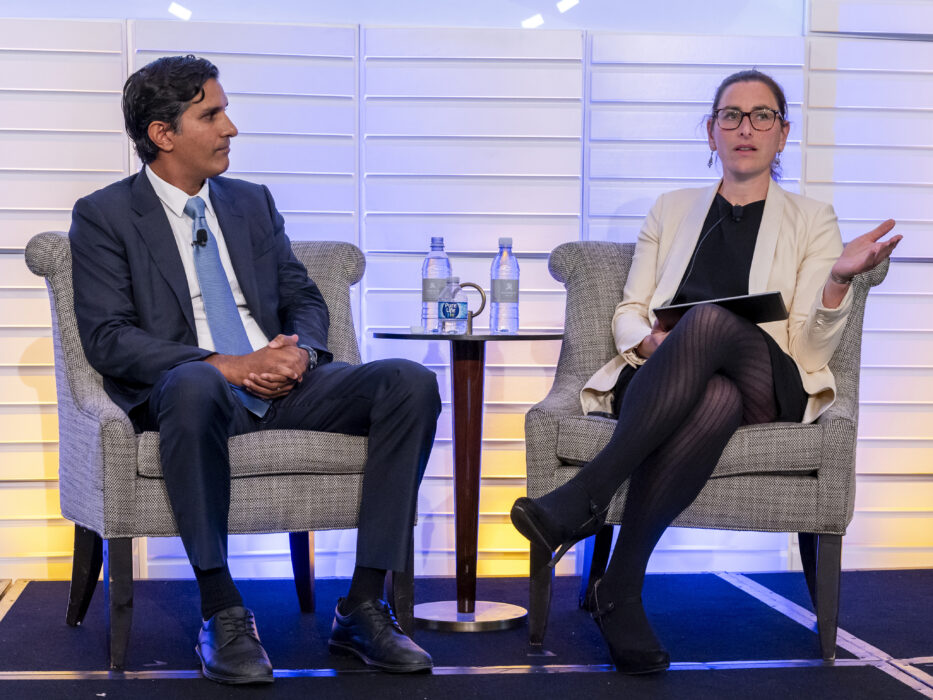
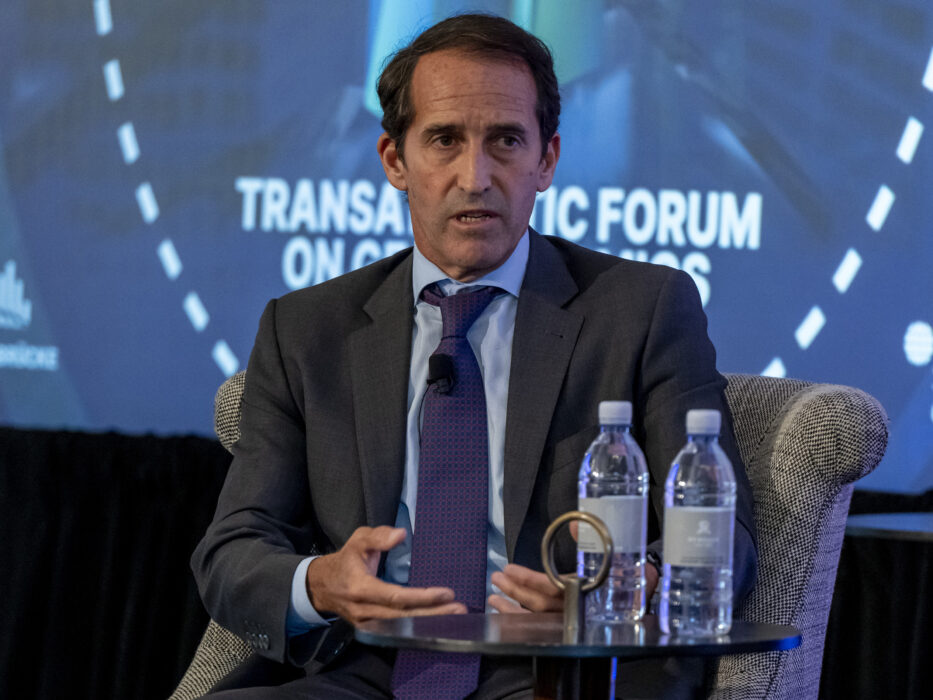
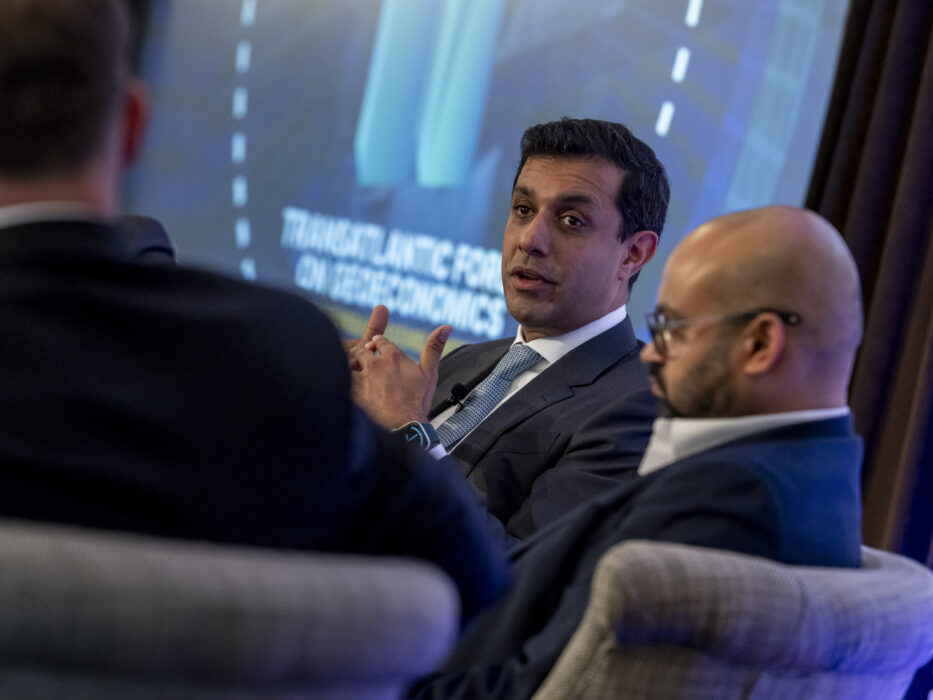
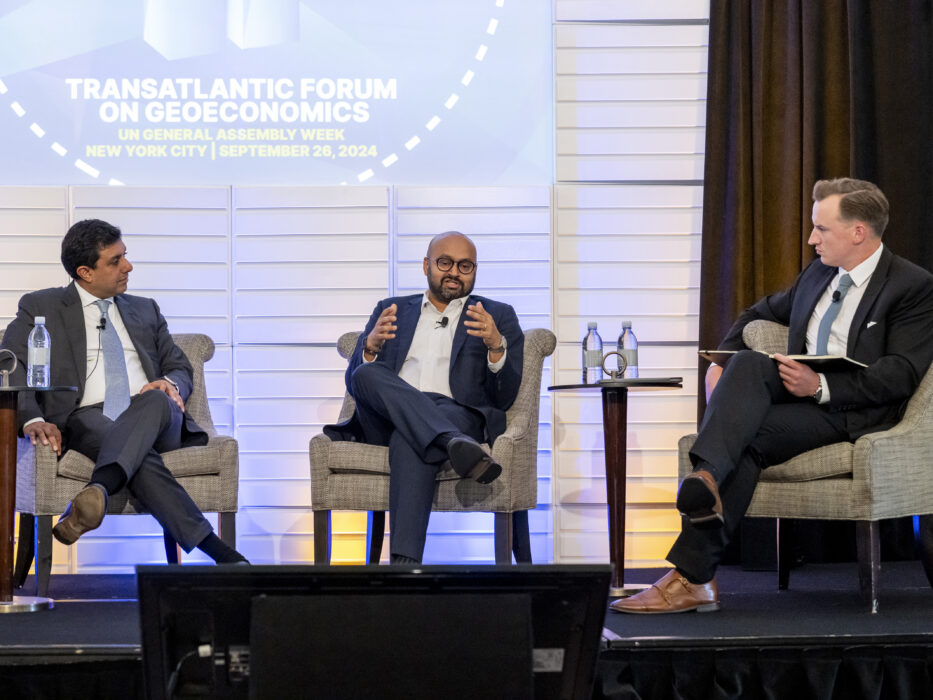
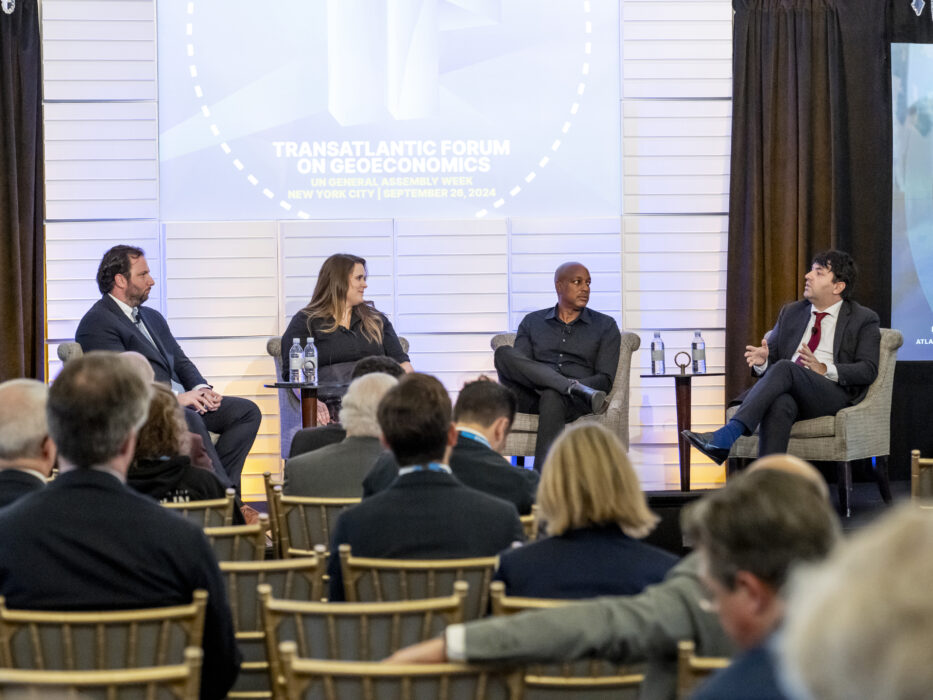
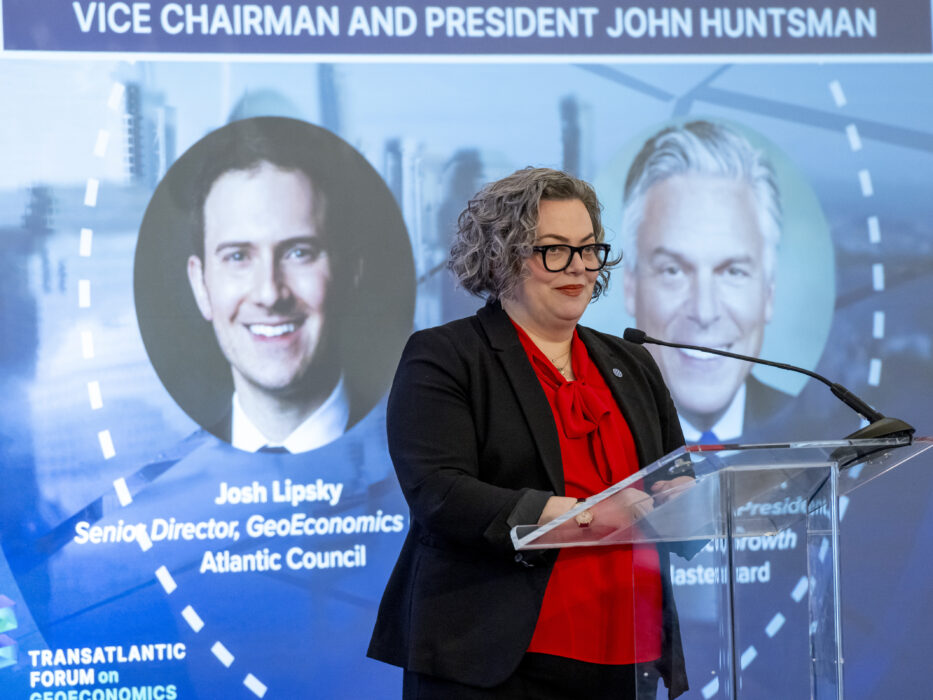
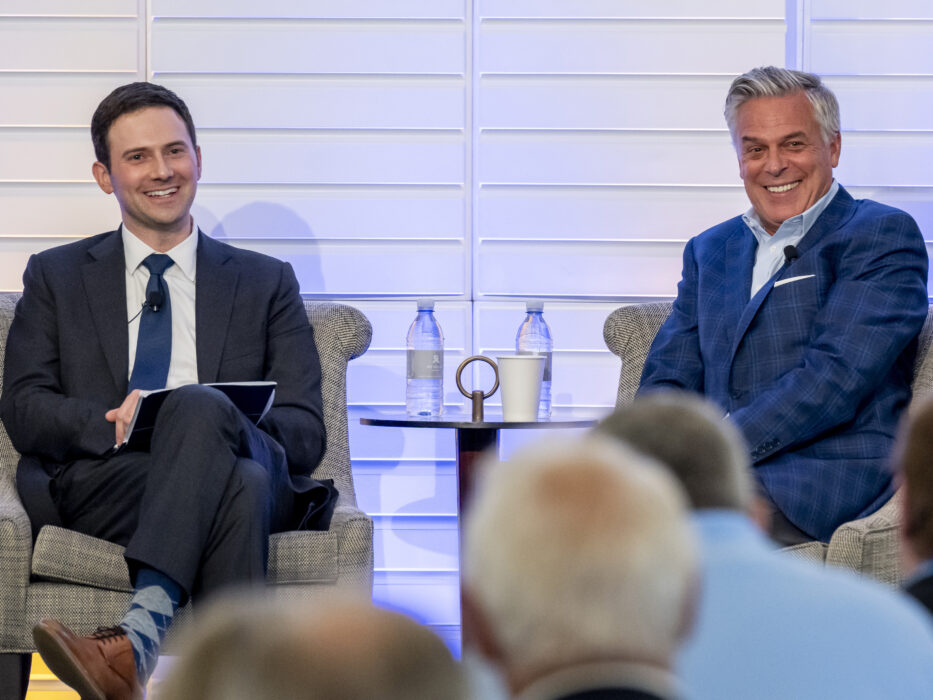
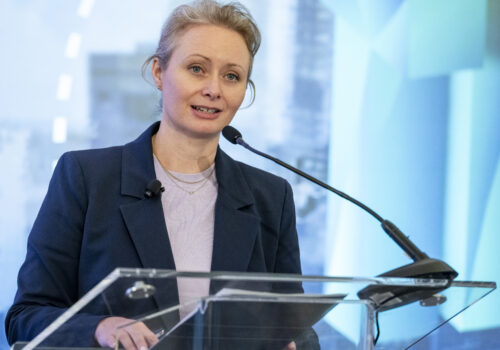
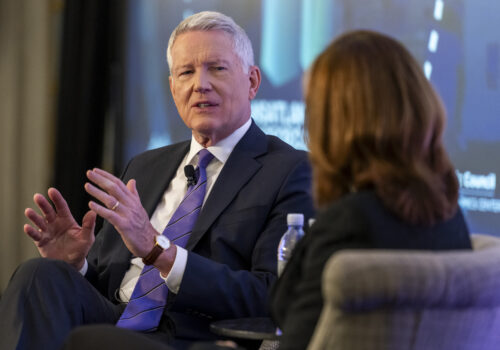
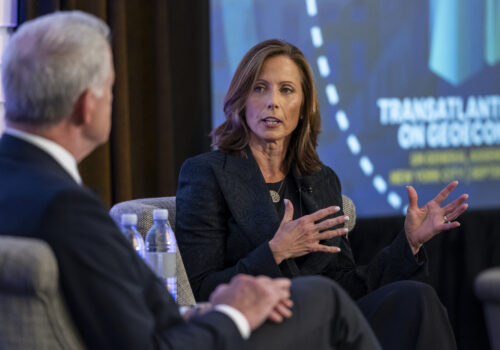
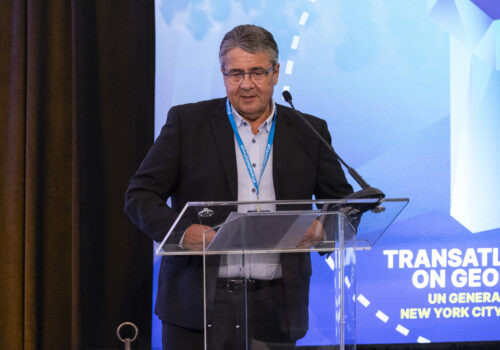
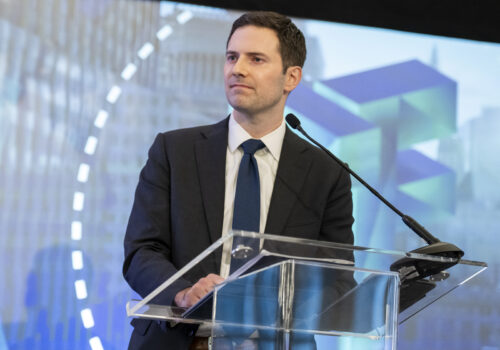
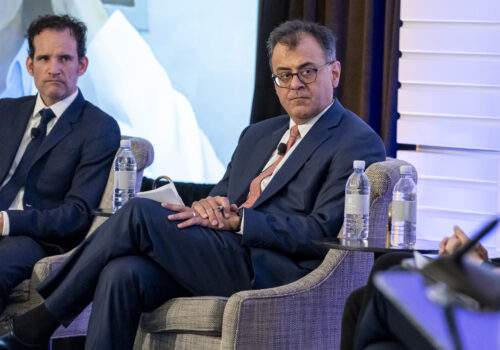
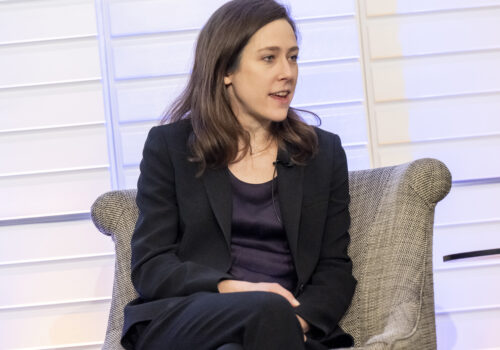
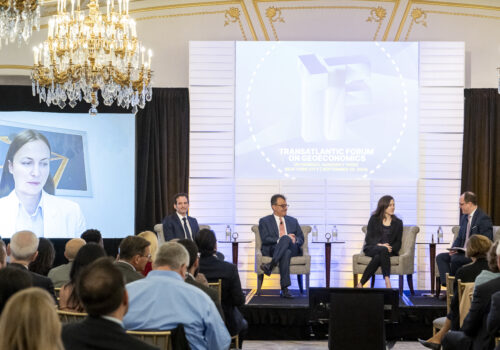
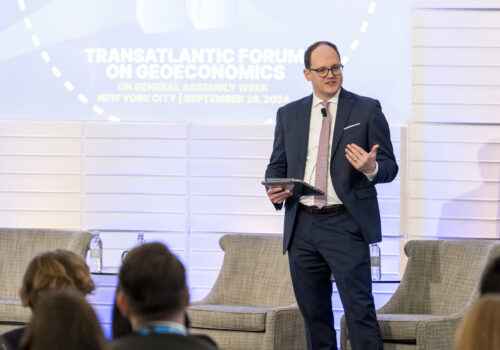
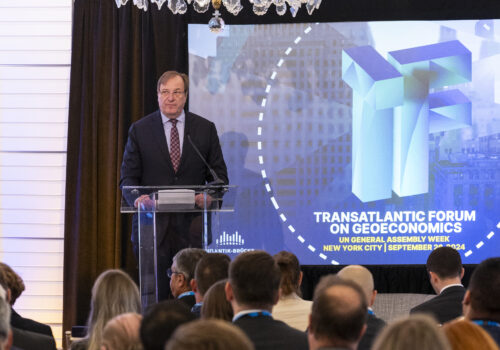
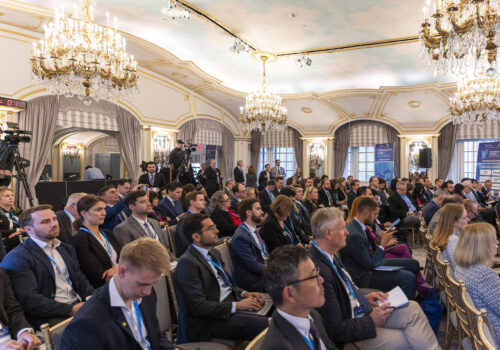
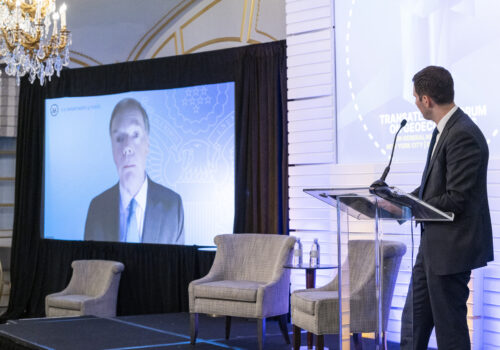
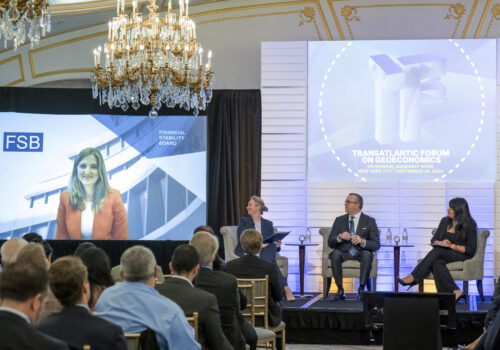
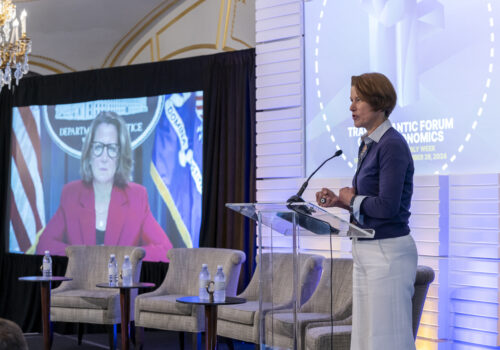
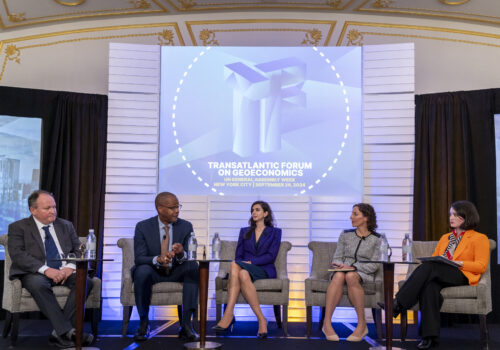
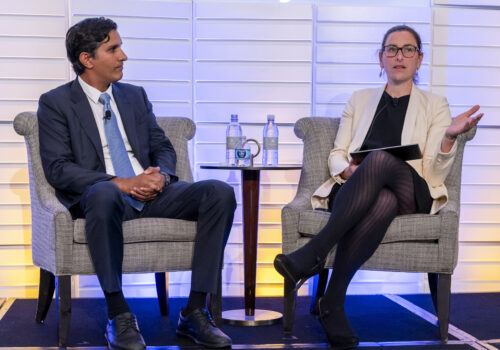
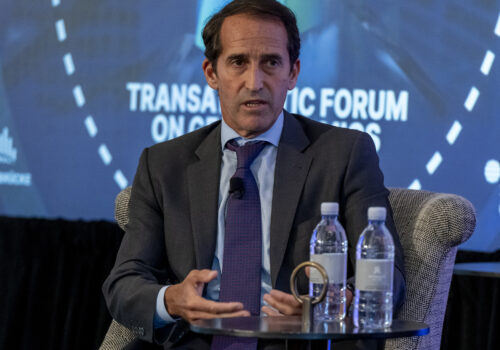
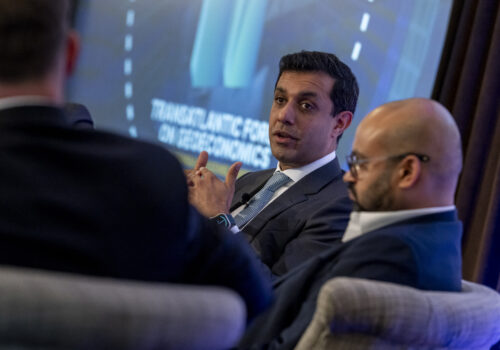
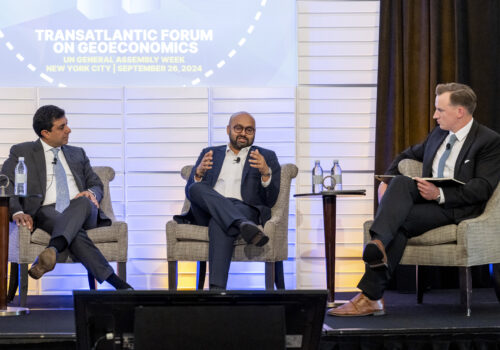
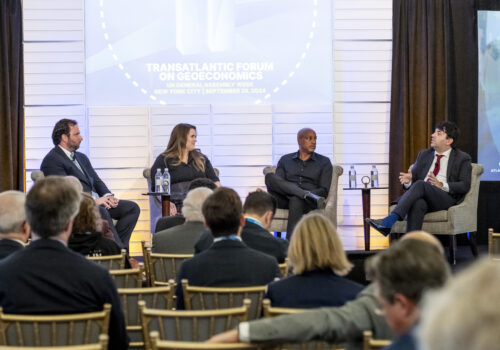
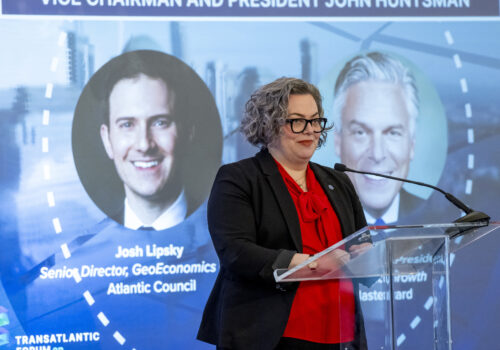
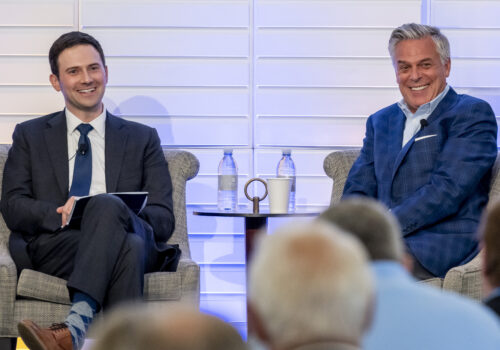






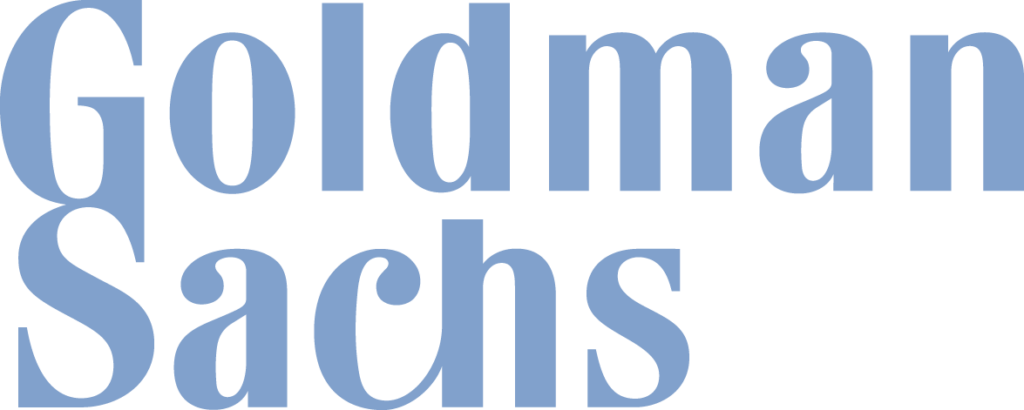



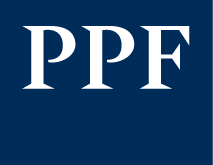
Follow us on social media